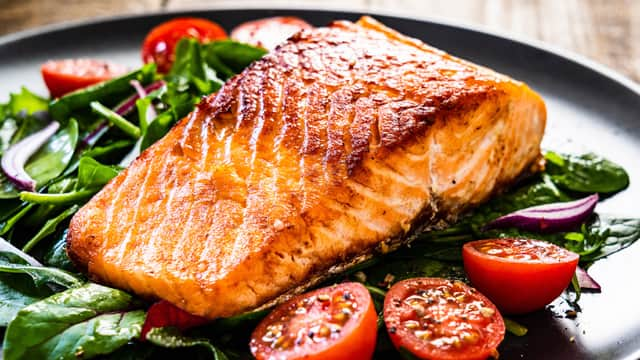Why Do Some Foods Cause Bad Breath?
All foods can impact your breath. When we eat, food debris can stick to our teeth and tongue, providing a nice meal for the bacteria in our mouth. When bacteria feed on food, especially carbohydrates, they produce acids that give off an odour. On top of mouth bacteria, strong-smelling foods also can cause bad breath when they enter the bloodstream. But, you don't have to avoid flavourful foods because they affect your breath. There are products you can use and habits you can adopt to freshen your breath after a meal.
Garlic, Onions, and Spicy Foods
Lots of spicy foods, including chiles, peppers, and spices, can give you bad breath. According to the Indian Dental Association, causes of bad breath include external agents like garlic, onions, smoking etc. A clean mouth is less likely to smell. Brush twice a day, thoroughly and floss daily.
Tip: Promptly chew sugar-free gum or brush your teeth after eating spicy or aromatic meals to help treat bad breath while eating the foods you love.
Coffee and Alcoholic Beverages
The Indian Dental Association explains that alcohol is another factor that dries the mouth, and over indulging in caffeine will worsen a dry mouth. Dry mouth does happen while we sleep, leading to "morning breath." But when you consume drinks that dry out your mouth, you can have morning breath any time of the day.
Tip: Make it a habit to drink water before and after enjoying caffeinated or alcoholic beverages to help reduce dry mouth and freshen breath.
Tuna and Other Fish
Tuna and other fish are filling, high in protein, and delicious! However, tuna and other canned fish have a specific "fishy" odour. A research study published in the Indian Academy of Sciences explains that Trimethylamine (TMA) is a tertiary amine with a characteristic fishy odour. Trimethylaminuria (TMAU) is a disease typified by its association with the characteristic fishy odour because of decreased TMA metabolism and excessive TMA excretion.
Tip: Splash lemon or vinegar onto fish before eating. Acidic ingredients can help TMA bind to water, reducing its potency. Or, chew some sugar-free gum and brushing your teeth after eating may also help with the odour.
How to Fight Bad Breath
Remember, a proper oral care routine can help your breath smell fresh, even if you indulge in these aromatic foods and beverages. The Indian Dental Association recommends to brush at least twice a day. Try to brush in the morning, either before or after breakfast. After breakfast is better. That way, bits of food are removed. But if you eat in your car or at work or skip breakfast, brush first thing in the morning. This will get rid of the plaque that built up overnight. Cleaning between your teeth with floss, water flossers, or interdental brushes and rinsing with a mouthwash or antiseptic mouthrinse also help ensure you have fresh breath. Further, you can eat foods that fight bad breath. The Indian Dental Association notes that fruits and vegetables act as natural cleansers, due to their high fibre content. Some components of foods are protective against dental caries. Protein, fat, phosphorus and calcium inhibit caries. Fats may also accelerate oral clearance of food particles.
This article is intended to promote understanding of and knowledge about general oral health topics. It is not intended to be a substitute for professional advice, diagnosis or treatment. Always seek the advice of your dentist or other qualified healthcare provider with any questions you may have regarding a medical condition or treatment.
ORAL HEALTH QUIZ
What's behind your smile?
Take our Oral Health assessment to get the most from your oral care routine
ORAL HEALTH QUIZ
What's behind your smile?
Take our Oral Health assessment to get the most from your oral care routine













